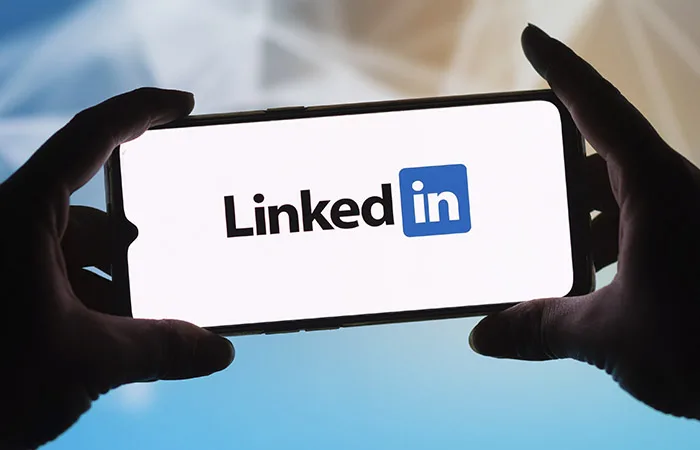Branding has long ceased to be exclusively the prerogative of large corporations with multi-million dollar budgets. Today, small and medium-sized businesses realize that a strong identity is not just a way to stand out, but also a necessity for successful growth. However, many business owners still have doubts: is it worth investing in branding if the business is just starting to develop or operates in a narrow niche? Let's find out what it is advantages of branding for small and medium-sized businesses.
What is branding and why is it important?
Branding — it's not just the logo and brand colors. This is a whole set of measures that helps the company form an image in the minds of its audience. This is a story about who you are, what you do, and how you solve customer problems. Your brand is not just a product or service, it is the perception that people have after interacting with you.
In a highly competitive environment, especially in local markets, branding helps small and medium-sized companies not only compete with larger players, but also build their audience, loyal customers, and even ambassadors.
Creating a trust
One of the most important advantages of branding for small and medium-sized businesses is the ability to generate trust. When a company has a well-thought-out positioning, attractive visual style and clearly formulated values, it becomes more understandable to the consumer. People prefer to work with people they trust, and branding creates a sense of stability and professionalism.
Even if your business has just entered the market, good branding helps you look serious. For example, a well-designed website, packaging, or social media style can create an impression of your experience and responsibility.

Attracting the target audience
Small and medium-sized businesses often have limited resources for promotion. Therefore, it is important to reach your audience as accurately as possible. Branding helps you create a message that resonates with exactly the right people who need your product or service.
For example, if your audience is young people, the brand should speak to them in a clear language, use relevant images and channels. If you work with corporate clients, the emphasis is on professionalism and reliability. Thus, branding allows you to not only attract people, but also build long-term relationships with those who value your work.
Increased visibility
Recognition is one of the most important results that is achieved thanks to for branding purposes. Even if your products or services outperform your competitors, it may not be enough if you are simply not known. Recognition allows customers to remember you when they have a need that your business can meet.
A well-designed visual style helps you stand out. It can be a bright logo, original packaging, or a non-standard approach to presenting information. When your customers start to recognize you among dozens of other offers, you're laying the groundwork for their loyalty.

Forming an emotional connection
Emotions play an important role in decision-making. Branding - it's a way to evoke certain feelings in the audience, whether it's joy, inspiration, or confidence. When your business is associated with positive emotions, customers will choose you again and again.
To do this, it is important to understand what emotions you want to evoke in your audience. For example, if you are engaged in baking, your brand may be associated with warmth and comfort. If you offer services in the tech industry, it can be a sense of progress and efficiency. The right associations form long-term connections.
Increase customer loyalty
When customers feel an emotional connection to the brand, they become more loyal. Loyalty is not only about repeat purchases, but also a willingness to recommend you to others. Small and medium-sized businesses often depend on word of mouth, and branding helps create the conditions under which customers themselves become your promoters.
In addition, loyalty helps you survive difficult times. Even if competitors offer discounts or new products, your customers will stay with you because they trust you and feel your brand aligns with their values.
Competitive advantage
Even if your business operates in a niche where there is little competition, branding helps you gain a strong position. When a company has a clear concept and a recognizable style, it stands out from others. This is especially important for small and medium-sized businesses, where every competitive advantage can play a crucial role.
Even if your product is similar to others on the market, its unique presentation, story, or values make it more appealing. People choose not only products, but also what is behind them. The benefits of branding for small and medium-sized businesses are that it allows you to tell your story in a way that inspires and motivates you.
Attracting talented employees
Do not forget that the brand is important not only for customers, but also for employees. Companies with a strong brand make it easier to attract and retain talent. When people see that a business has a purpose and values that they can identify with, they are more likely to want to work for that particular company.
This is especially true for small and medium-sized businesses, where the team plays a crucial role. A strong brand helps create an atmosphere in which people want to work and develop.
Long-term benefits
Although branding may require an initial investment, its results will be noticeable over time. Every element of branding — from the logo to the corporate identity-works for you on a daily basis, even if you don't invest in advertising.
In addition, a strong brand increases the company's value. If you decide to expand or look for investors in the future, having a brand will be a big advantage. This is an indicator that the business is stable and has its own face in the market.

How do I start working on branding?
If you're just thinking about building a brand, start by answering a few questions:
- What makes your business special?
- How do you want your customers to talk about you?
- What values do you want to broadcast?
The answers to these questions will help you form the basis for working on branding. After that, you can move on to creating a visual style, developing a website, and other elements that will shape the perception of your business.








